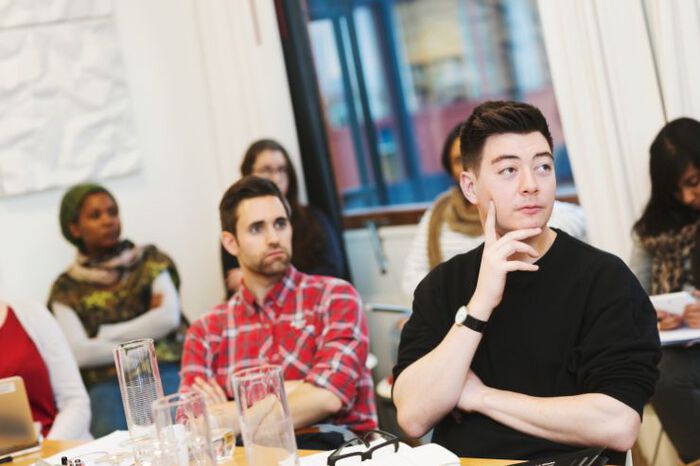Ph.d-seminarer ved ILN - Side 2
The MultiLing Winter School 2020 will take place from 24 to 28 February, 2020 . This year, we will explore issues in second language learning (with)in marginalized populations.
Førsteamanuensis Henriette Siljan (ILS, UiO), universitetslektor Mikael Nordenfors (Göteborgs universitet) og ph.d.-stipendiat Kristin Torjesen Marti (ILN, UiO) vil på ulike måter snakke om hvordan vi kan forstå tekst og skriving, teoretisk og empirisk. Seminaret er åpent for alle - velkommen!
This year's Summer School is titled Revitalisation and reclamation of Indigenous and minoritised languages. It is a collaboration between MultiLing and UiT The Arctic University of Norway.
This course, by PhD Mélissa Berthet, Ecole Normale Supérieure, aims to provide students with basic knowledge in order to understand and conduct research on animal linguistics. We will focus on the basic theoretical concepts of physics, anatomy, ethology and linguistics that are relevant to the field of animal linguistics. Furthermore, this course will introduce (i) how to design an experiment, (ii) data collection techniques and methodology, (iii) methodology of data processing, with a practical course on the Praat and Elan software and (iv) data analysis methods.
PhD course organized by MultiLing and the research group Studies of Instruction across Subjects and Competences (SISCO) at the Faculty of Educational Sciences.
This course focuses on empirical aspects of linguistic studies; the goal is to raise awareness of the possibilities and pitfalls associated with different data types. The instructors are linguists with extensive experience collecting and analysing different types of data.
Linguistics is becoming ever more data-driven, with increasing use of data from corpora and experiments. This course will teach you the basic computational skills that you need to engage in large-scale data collection and analysis. Concretely, you will learn to use the programming language Python and its associated open source library called the Natural Language Toolkit (NLTK).




